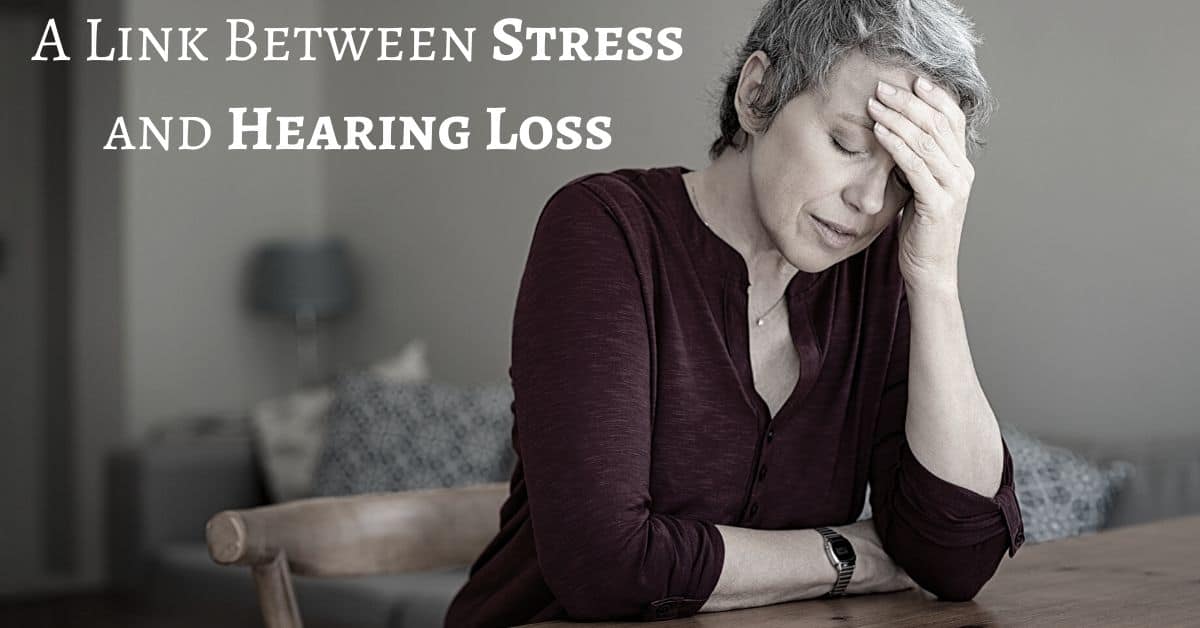
- Signs Your Earwax Buildup Needs Professional Attention - May 29, 2025
- Preparing for a Hearing Test and What You Should Bring - May 16, 2025
- A Step-by-Step Look at How Hearing Aids Make Sounds Sharper - May 5, 2025
With our busy lives full of competing pressures, it’s not uncommon to deal with stress every day. Some stress can be a good motivator and help us stay on track to get things done. However, too much stress can become overwhelming, and can lead to a lot of health problems such as lowered immune system functioning, increased difficulty sleeping, and difficulty focusing on tasks and accomplishing goals.
What is Stress?
Not all stress in bad, and some stress can even have a positive influence. In fact, our stress response is what helped humans stay alive. Known as the “fight or flight” response, stress is a natural response to external stimuli, and will help you run away from danger, or boost your adrenaline to allow you to fight off an intruder and protect your family. However, in modern society we face daily stressors we can’t physically fight or run away from, and this ongoing stress response can become very harmful to our health. Common stressors include worries about your children, your job, or your finances and can cause chronic stress.
The Effects of Long-Term Stress
If you live with daily or chronic stress, you’ll start to notice the negative effects of stress on your body. Daily doses of increased adrenaline increase your heart rate and breathing rate, and more oxygen is sent to your muscles to prepare them to run or fight. Less oxygen and energy are sent to your immune system, your digestive system, and even the logic centers of your brain. Your sleep cycles are affected, and stress can cause insomnia. Chronic stress also increases your risk of heart disease, high blood pressure, and even diabetes.
Stress and Hearing Loss
Not only can stress weaken your immune system, stress is linked to hearing loss and tinnitus. When you’re very stressed and face changes to your circulation from heart disease or high blood pressure, your ears will be affected. Your ears rely on a steady flow of oxygenated blood to allow the delicate cells in your inner ear to analyze the sounds around you, translate the sound waves into electrical impulses, and send these signals to the brain to let you hear. When circulation is affected, these cells are damaged from oxygen deprivation, and they’re not able to send signals to the brain. This leads to hearing loss, and you’ll struggle to follow conversations or hear all the sounds around you.
Reduce Stress to Improve Your Health and Hearing
Not only will reducing stress improve your overall health, it will protect your hearing. Combat stress by taking a break. Step away from a stressful situation or task for a few minutes, practice some deep breathing, and remind yourself that it’s not a life or death situation. You’ll be able to come back to the task without feeling so stressed and accomplish it with ease. Exercise is another great way to reduce stress, and getting the adrenaline out of your system through physical activity will help your muscles and body relax. Even 15 minutes of exercise per day will lower stress and help you combat anxiety. Meditation can also help your body and mind relax, and calm a stress response before it gets out of hand.
When you’re struggling with a lot of stress, find a trusted friend or family member you can talk to, or seek professional help. Talking to someone about the cause of your stress can help alleviate the feelings of anxiety, and help you regain a sense of calm.
Treating Hearing Loss
If you’ve noticed any changes to your hearing health and think it might be linked to stress, visit a hearing health specialist to learn more about your treatment options. Living with untreated hearing loss, and straining to follow conversations, will heighten your stress and you’ll experience more negative health effects. You have a lot of options when it comes to treating your hearing loss, and you’ll be able to customize the treatment plan that works the best for you with hearing devices to help you hear clearly and follow conversations in difficult listening situations. Treating your hearing loss as soon as possible and taking steps to reduce your stress will improve your overall health and well being, and protect your hearing health.
